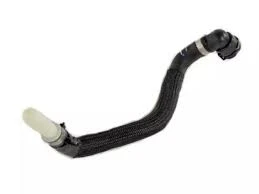gas heater hose
Nov . 23, 2024 11:12 Back to list
gas heater hose
Gas Heater Hose A Critical Component for Safety and Efficiency
When it comes to using gas-powered appliances, safety and efficiency are paramount. One crucial component that plays a vital role in ensuring both aspects is the gas heater hose. Designed to connect gas heaters to gas sources, these hoses are essential for the safe transfer of gas. In this article, we will delve into the various facets of gas heater hoses, exploring their materials, maintenance, and importance in the broader context of gas appliance safety.
Materials and Construction
Gas heater hoses are typically constructed from durable materials capable of withstanding high pressures, temperature fluctuations, and corrosive gases. The most common materials used include rubber, PVC, and stainless steel. Each of these materials offers distinct advantages
1. Rubber Hoses These are flexible and easy to install, making them a popular choice for residential gas heaters. However, they may degrade over time if exposed to UV rays or extreme temperatures, necessitating regular inspections.
2. PVC Hoses Polyvinyl chloride (PVC) hoses are lightweight and resistant to various chemicals. While they are less flexible than rubber hoses, they are often used in situations where weight is a concern.
3. Stainless Steel Hoses Known for their durability and resistance to corrosion, stainless steel hoses are ideal for gas appliances in harsh environments. They can handle high pressure and temperature, ensuring a reliable connection.
Importance of Proper Installation
The effective operation of a gas heater largely depends on the proper installation of the gas heater hose. An improperly installed hose can lead to gas leaks, posing severe safety risks. It is vital to follow the manufacturer's instructions and local codes during installation. Common practices include
- Ensuring proper length The hose should not be too long or too short, reducing the risk of tangling or excessive strain. - Using appropriate fittings Mismatched fittings can create weak points that may lead to leaks. Always use compatible connectors that fit snugly and securely. - Checking for kinks Kinks can restrict gas flow and lead to pressure build-up, which can be dangerous. Avoid tight bends or sharp turns in the hose to ensure smooth gas transmission.
gas heater hose

Maintenance and Inspections
Regular maintenance and inspections of gas heater hoses are crucial for safety and optimal performance. Homeowners should adopt the following practices
- Visual Inspections Regularly check for visible signs of wear, such as cracks, frays, or discoloration. Any noticeable damage should prompt an immediate replacement of the hose.
- Leak Detection Homes with gas appliances should have a proper leak detection system in place. If the smell of gas is evident, it is vital to turn off the gas supply and seek professional help without delay.
- Routine Replacement Most manufacturers recommend replacing gas heater hoses every three to five years, even if no visible damage is apparent. This preventative measure can avert unforeseen hazards.
Regulatory Compliance
It is essential to be aware of and comply with local regulations regarding gas appliance installation and maintenance. Many regions require that gas appliances be installed by certified professionals to ensure adherence to safety codes. Before purchasing or installing a gas heater hose, checking for relevant certifications and standards is crucial. Compliance with these regulations not only ensures safety but may also be necessary for insurance coverage in case of incidents.
Conclusion
Gas heater hoses are more than mere connecting tubes; they are critical components that ensure the safe and efficient operation of gas heaters. Understanding the materials they are made from, the importance of proper installation, and the need for regular maintenance is vital for every homeowner utilizing gas appliances. By prioritizing safety and adhering to regulations, we can enjoy the benefits of gas heating systems without compromising our well-being. Ultimately, investing time and effort into the care of gas heater hoses is an investment in safety and efficiency for our homes.
